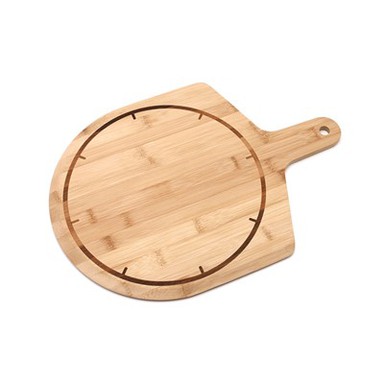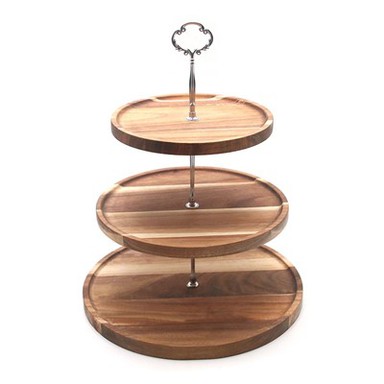Why choose bamboo as the raw material of the cutting board?
May 24, 2024
Sustainability: A Renewable Resource
Bamboo, often hailed as the fastest-growing plant on earth, can reach maturity within three to five years, significantly quicker than hardwood trees that take decades. This rapid growth cycle renders bamboo a highly renewable resource, making its harvest and utilization environmentally sustainable. Unlike deforestation practices associated with traditional hardwoods, bamboo cultivation does not lead to long-term ecological damage. Its extensive root system remains intact even after harvesting, preventing soil erosion and maintaining the ecosystem's balance. Thus, choosing a bamboo cutting board supports responsible consumption and contributes to preserving our planet's forests.
Durability and Strength
Bamboo's inherent hardness and density surpass many hardwoods, including maple and oak, rendering it exceptionally resistant to knife marks and scratches. This resilience ensures that bamboo cutting boards maintain their integrity and flatness over time, even with frequent use. Furthermore, bamboo fibers contain a natural antibacterial agent called 'bamboo kun,' which inhibits the growth of bacteria and fungi, promoting a hygienic food preparation surface. This characteristic is particularly valuable in kitchen settings where hygiene is paramount.
Easy Maintenance and Hygiene
Bamboo cutting boards are straightforward to clean and maintain. They can be washed with warm soapy water and air-dried, without the need for harsh chemicals that could be detrimental to the environment or leave residues on food surfaces. Unlike plastic boards, bamboo does not absorb odors or stains from foods like garlic or onions, ensuring that the fresh flavors of ingredients are preserved. Additionally, the natural antimicrobial properties of bamboo contribute to a safer food prep area, reducing the risk of cross-contamination.
Aesthetics and Versatility
Bamboo's natural golden hue and distinctive grain patterns lend an elegant touch to any kitchen decor. Its aesthetic appeal combined with its functional benefits make bamboo cutting boards a versatile addition to both professional and home kitchens. Available in various sizes and shapes, they cater to different culinary needs, from chopping herbs to carving meats. Moreover, bamboo's light weight makes it easier to handle and store compared to heavier wooden boards.
Economic and Social Impact
Adopting bamboo cutting boards also fosters economic development in regions where bamboo is cultivated. Many communities rely on bamboo farming as a source of income, providing jobs and supporting local economies. By choosing bamboo products, consumers indirectly contribute to poverty alleviation efforts and promote fair trade practices.
Environmental Footprint Reduction
Compared to plastic cutting boards, which are derived from non-renewable resources and contribute to plastic waste when discarded, bamboo boards offer a more eco-friendly solution. Plastic disposal poses significant environmental challenges, including pollution of oceans and harm to wildlife. Bamboo, being biodegradable and compostable, reduces waste and aligns with circular economy principles.






